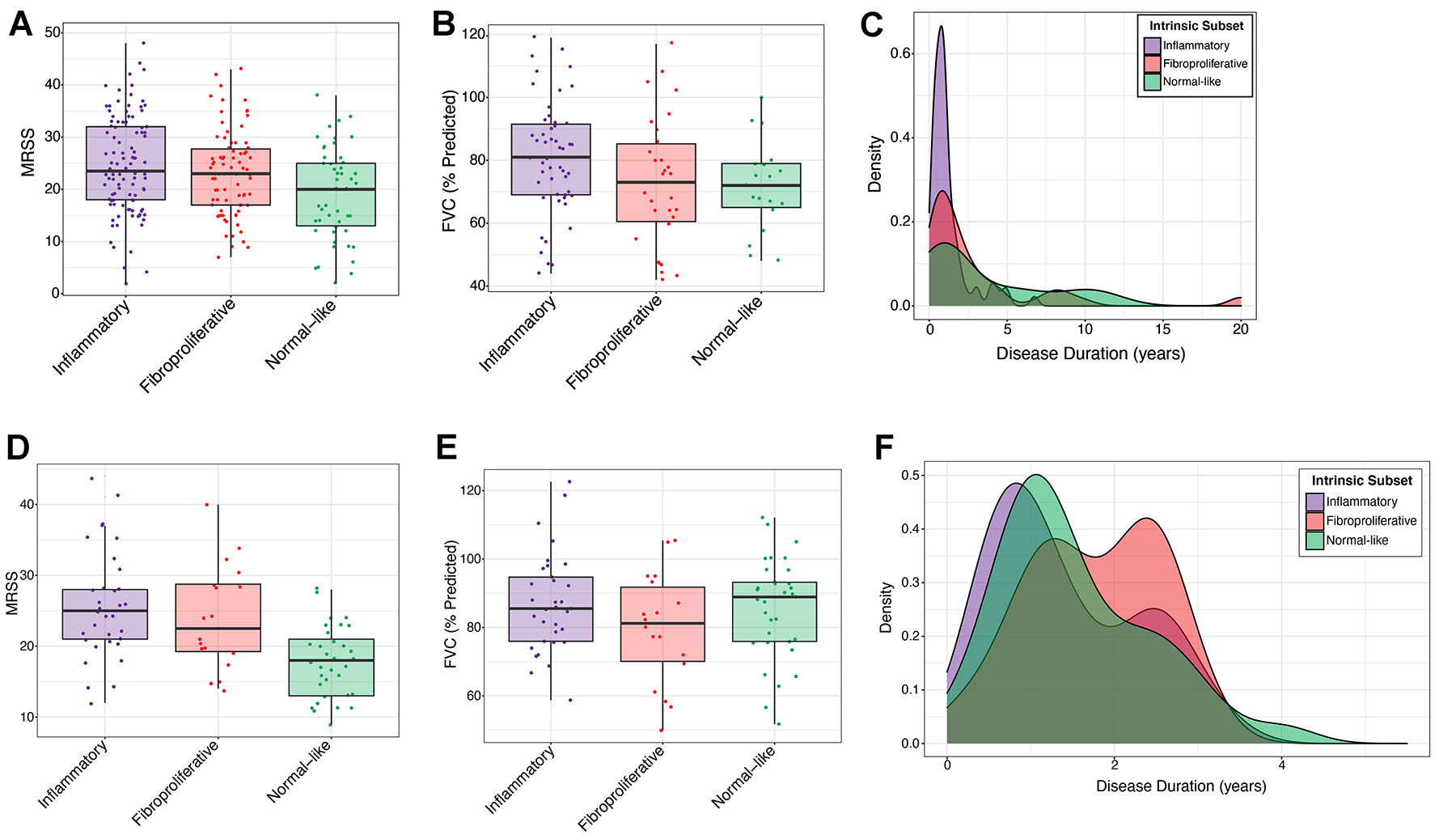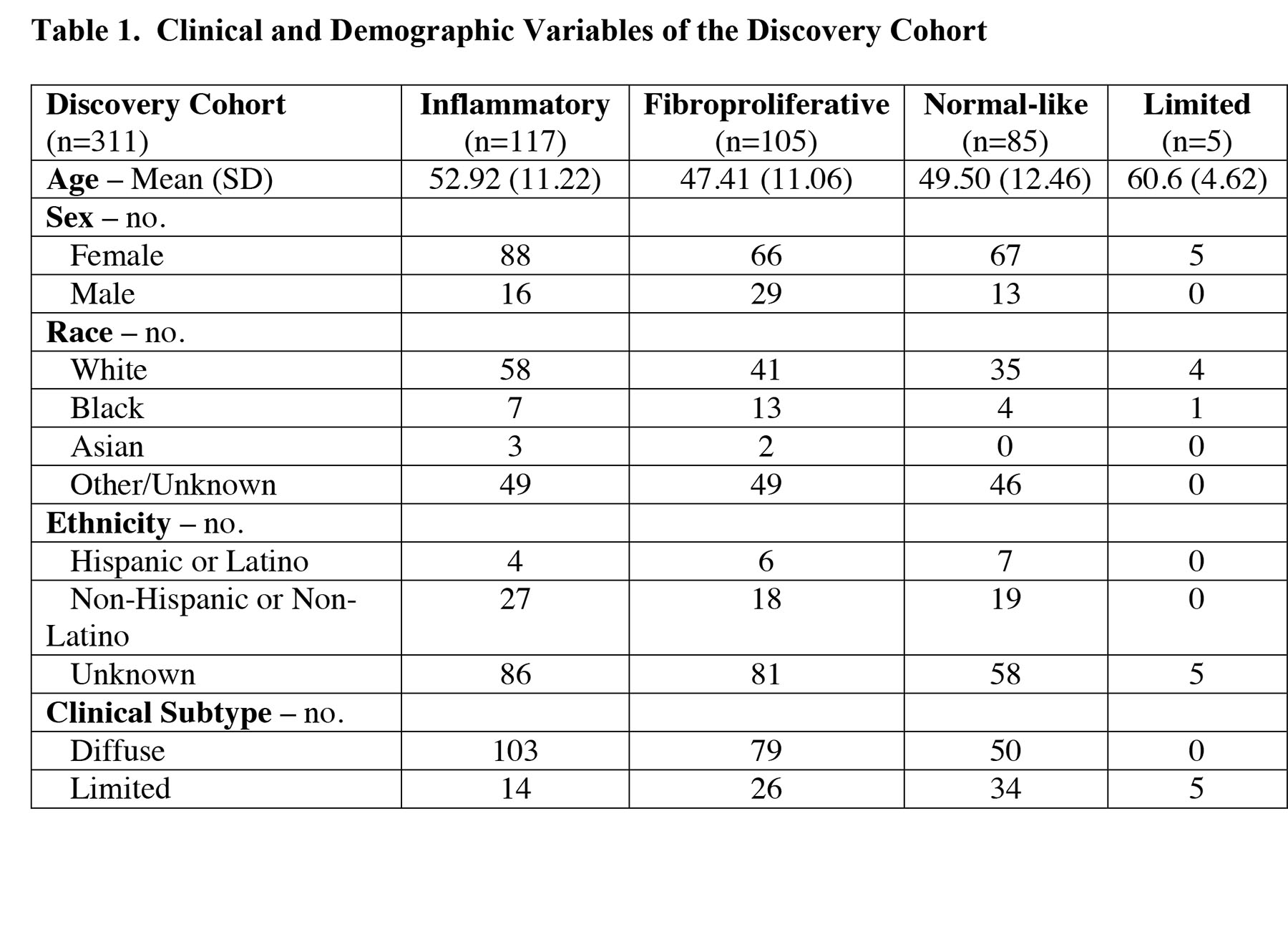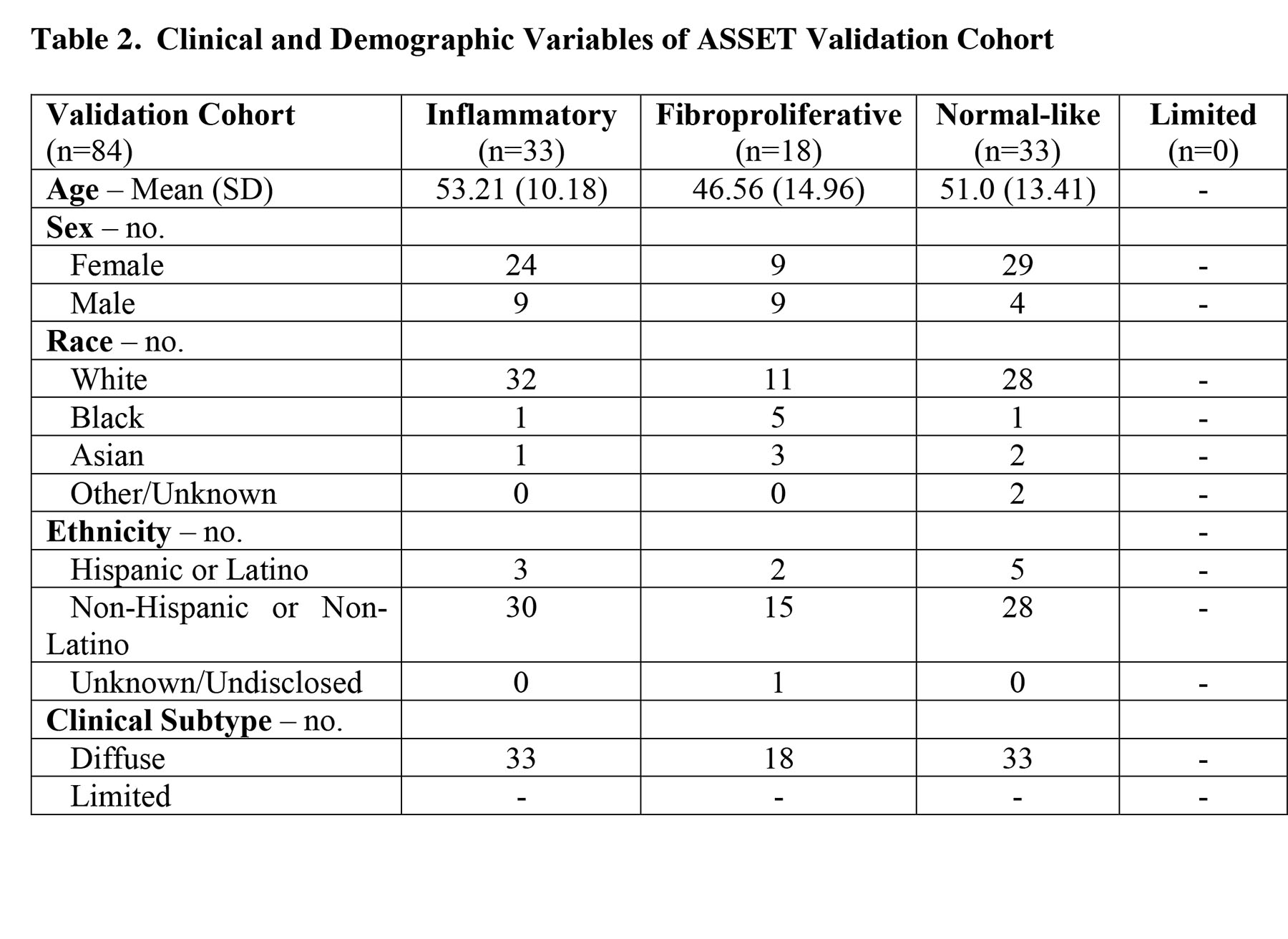Session Information
Date: Monday, November 8, 2021
Title: Systemic Sclerosis & Related Disorders – Clinical Poster II (1364–1390)
Session Type: Poster Session C
Session Time: 8:30AM-10:30AM
Background/Purpose: Four intrinsic molecular subsets (Inflammatory, Fibroproliferative, Limited, Normal-like) have been identified in systemic sclerosis (SSc) that may have different clinical associations. To test this hypothesis we investigated associations between baseline clinical demographics and intrinsic subsets in a meta-analysis of 14 gene expression datasets for 395 individuals with SSc.
Methods: Publicly available gene expression data measured in skin for 311 independent SSc patients were classified into the intrinsic molecular subsets using a previously trained machine learning classifier. Data from 84 independent participants from the ASSET trial was used as a validation cohort. Normalized RPKM values from skin were similarly classified into the intrinsic gene expression subsets. Patient clinical and demographic data were collected for each cohort from original publications or from individual investigators. Associations were tested using Fisher’s Exact Test and Tukey’s pairwise comparisons.
Results: The majority of the SSc patients in this analysis were white (50.74%), female (69.49%), and classified as dcSSc (70.96%). Males were 2.5 – 4x as likely to be fibroproliferative than females in discovery (p=0.0046) and validation cohorts (p=0.015). Females and males were equally likely to be classified as inflammatory, normal-like, or limited. SSc patients who identified as African-American/Black were 2.5x more likely to be classified as fibroproliferative compared to White/Caucasian patients in both discovery (p=0.0378) and validation cohorts (p=0.0062). SSc patients who identify as White or Caucasian were more likely to be classified as inflammatory or normal-like (p=0.0037). Patients sera positive for RNA pol I (p< 0.0001) and RNA pol III (p=0.0001) autoantibodies were enriched in the inflammatory subset, while Scl-70 was enriched in the fibroproliferative subset, but did not reach statistical significance. There were statistically significant differences in modified Rodnan skin score (mRSS). Inflammatory and fibroproliferative subsets had higher average mRSS relative to normal-like (p=0.0027). There was no difference between the average mRSS for inflammatory (avg=24.67) and fibroproliferative (avg=23.13) individuals. Patients in the fibroproliferative and normal-like subsets on average had a trend toward lower %FVC. We identified a statistically significant difference in average disease duration between the inflammatory, fibroproliferative, and normal-like intrinsic subsets (p=8.8E-4). Patients in the inflammatory subset had the shortest disease duration, which was lower than both the fibroproliferative subset (p=0.0073) and the normal-like subset (p=0.0042).
Conclusion: We found multiple significant associations between demographic and clinical variables with intrinsic subsets. By leveraging data from multiple studies, we increased statistical power and validated these associations. These findings identify may have clinical implications for identifying treatments more likely to work in certain SSc populations. This difference in temporal distributions may reflect chronological stages of fibrosis.
 Figure 1. Measures of phenotypic severity in dcSSc patients of the discovery (A-C) and validation cohorts (D-F) stratified by intrinsic subset. Differences in MRSS (A, D), FVC (B, E) and disease duration (C, F) are shown.
Figure 1. Measures of phenotypic severity in dcSSc patients of the discovery (A-C) and validation cohorts (D-F) stratified by intrinsic subset. Differences in MRSS (A, D), FVC (B, E) and disease duration (C, F) are shown.
To cite this abstract in AMA style:
Franks J, Toledo D, Martyanov V, Wang Y, Huang S, Wood T, Spino C, Domsic R, Hinchcliff M, Khanna D, Whitfield M. A Genomic Meta-Analysis of Clinical Variables and Association with Intrinsic Molecular Subsets in Systemic Sclerosis [abstract]. Arthritis Rheumatol. 2021; 73 (suppl 9). https://acrabstracts.org/abstract/a-genomic-meta-analysis-of-clinical-variables-and-association-with-intrinsic-molecular-subsets-in-systemic-sclerosis/. Accessed .« Back to ACR Convergence 2021
ACR Meeting Abstracts - https://acrabstracts.org/abstract/a-genomic-meta-analysis-of-clinical-variables-and-association-with-intrinsic-molecular-subsets-in-systemic-sclerosis/


